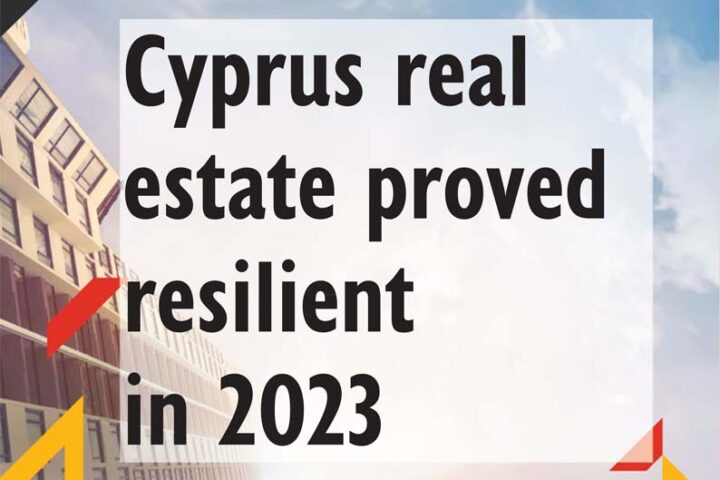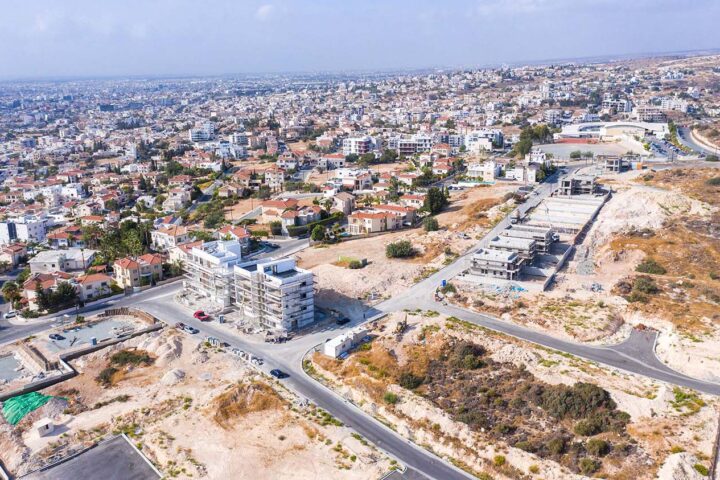Cyprus’ real estate sector will stabilise after hitting a record number of sales since 2008, as a growth trend following the pandemic is halted by rising building costs and interest rates.
According to Land Registry data, the sales documents filed in the first 11 months of 2022 were 12074, up from 9063 last year, marking an increase of 33%.
It is the best eleven-month period since 2008 when overall sales reached 14,043 units. According to analysts, the year will close with more than 13,000 sales recorded.
However, a slowdown was recorded in November, with experts expecting that the market will be going through a stabilisation period over the next couple of years.
In comments to the Financial Mirror, George Mouskides, the Cyprus Property Owners Association chair, said that expectations of stakeholders in the sector for the years ahead are low.
“The increases in building materials have pushed up construction and renovation costs, combined with the hike in interest rates, does not allow the sector’s stakeholders to have high expectations,” said Mouskides.
He reminded that building costs have, according to some estimates, gone up by more than 20%, reflecting on prices, arguing that prices would have gone higher if not for an increase in supply.
With reports saying that interest rates on mortgages could reach 5%, from 2.5% by the end of next year, this may not affect the initial capital needed to buy a house, but it affects the buyer’s cost.
“However, here we are faced with another difficulty, as banks are difficult to give loans, and when they do, they take too long to approve them, putting off interested couples.”
Mouskides said the sector is puzzled about how banks handle new loan applications, considering the high level of liquidity reported.
According to the Central Bank of Cyprus, total loans continued their downward trend for the fifth consecutive month, falling to €27.1 bln, while total liquidity in the system was €24.6 bln.
“On the other hand, a surge in demand to rent houses, fuelled by the banks’ reluctance to give out loans, and a flow of highly skilled workers, mainly in the IT and Fintech sectors, makes the option to buy a house more attractive”.
High-tech
Mouskides said that the headquartering government scheme to attract high-tech companies to move to Cyprus has paid off.
“These companies and their employees bring real business to the island as they engage in every aspect of the society and economy of the island, from shopping for clothes to renting a flat.
“What’s more, those who thought the demise of the citizenship for investment program two years ago would be the end of interest from foreigners to buy property were mistaken”.
He explained that real estate agents are seeing a heightened demand from expats eyeing to buy on the island, especially in coastal towns, with Lebanese and Israelis picking up in recent months.
“So, this demand has also balanced out an increase in supply.
“However, we expect a slowdown as developers will have second thoughts over going ahead with new projects”.
In comments to the Financial Mirror, Panos Danos FRICS, CEO of DANOS International Property Consultants & Valuers, said he expected the inventory of real estate assets to remain relatively high in Cyprus for 2023.
“This is not bad news, as the more the inventory, the more options for buyers and the more negotiable prices are.
“However, mortgage rates will remain high, and banks will still be difficult to agree on loans.”
It may mean that sellers might see fewer profits, but they will most likely profit nevertheless.
“It is unlikely that 2023 will be a major turning point for the real estate market in Cyprus.
“Buyer demand is not expected to surge, and sellers are not going to change prices drastically”.
Danos said the real estate market and prices will leverage demand and supply, with investors still viewing the property market as a solid investment for their money.
“But, still, buyers and sellers will take some time to digest the new norms, probably the first quarter of 2023, and to process the new adjusted prices.
“A risky but reasonable long-term prediction is that in 2024 is unlikely to see a significant improvement in prices or interest rates.
“The median prices will remain, making it hard for affordable real estate, especially housing”.










